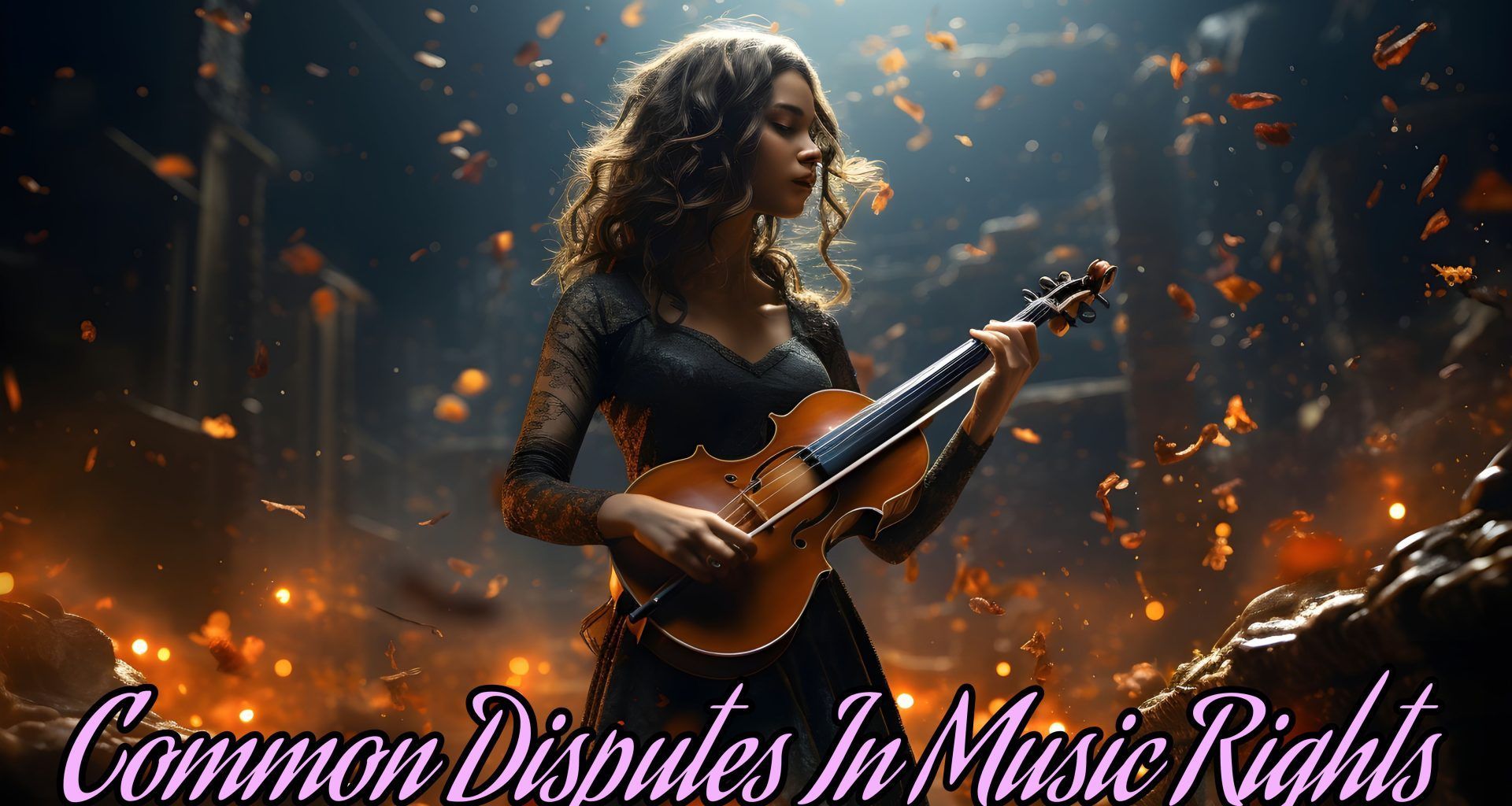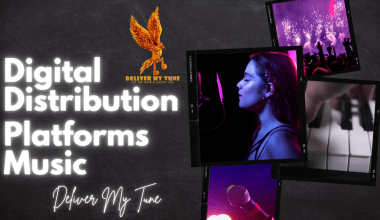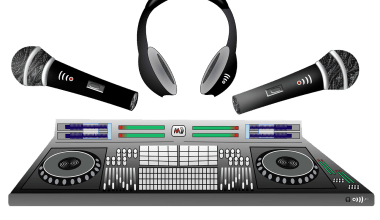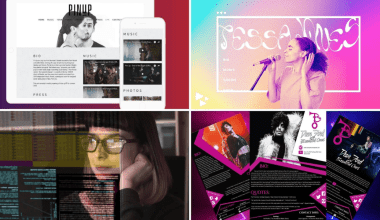The music industry is vibrant and diverse, but it also comes with its fair share of challenges, particularly when it comes to music rights. Common disputes in music rights often arise due to misunderstandings, unclear agreements, or outright infringements. These disputes can be complex and costly if not handled properly. In this comprehensive guide, we’ll explore the most common disputes in music rights and provide practical solutions to resolve them.
Understanding Music Rights
Before delving into the disputes, it is essential to understand the different types of music rights. Music rights typically fall into two main categories:
- Composition Rights: These are the rights to the underlying musical and lyrical work. The composer and lyricist usually hold these rights.
- Sound Recording Rights: These rights pertain to the specific recorded performance of the composition. The recording artist and the record label typically hold these rights.
Common Disputes in Music Rights
1. Ownership Disputes
Common disputes in music rights often revolve around ownership. These disputes can occur when multiple parties claim to own the rights to a particular song or recording. This usually happens when:
- There is no clear agreement between collaborators.
- A songwriter or artist transfers their rights without proper documentation.
- There are conflicting claims over who created what part of the song.
Resolution
- Clear Agreements: Ensure that all collaborations have written agreements that clearly outline who owns what rights.
- Proper Documentation: Maintain records of all transfers and agreements related to music rights.
- Legal Advice: Consult with a music attorney to draft and review contracts to avoid ambiguities.
2. Royalty Disputes
Royalty disputes are another common issue. These occur when artists, songwriters, or producers believe they are not receiving their fair share of royalties from the exploitation of their music.
Resolution
- Accurate Accounting: Ensure that all parties have access to transparent and accurate accounting records.
- Regular Audits: Conduct regular audits to verify that royalty payments are accurate and timely.
- Clear Terms: Define royalty splits clearly in all contracts to avoid misunderstandings.
3. Licensing Disputes
Licensing disputes arise when there is disagreement over the terms under which a song can be used. This can involve issues such as:
- Unauthorized use of music in commercials, films, or other media.
- Disagreements over the scope of the license (e.g., geographical or time limits).
- Non-payment of licensing fees.
Resolution
- Clear Licensing Agreements: Ensure that all licensing agreements are detailed and specific, covering all potential uses.
- Enforcement: Actively monitor the use of licensed music and enforce the terms of the agreement.
- Negotiation: Be open to renegotiating terms if circumstances change.
4. Sample Clearance Disputes
Sampling, or using portions of another artist’s work in a new creation, is common in music production. Disputes arise when samples are used without proper clearance from the original rights holders.
Resolution
- Seek Permission: Always seek permission before using a sample. This typically involves obtaining a license from the original rights holder.
- Clear Contracts: Include all necessary permissions and clearances in the contract before releasing the music.
- Legal Guidance: Work with a lawyer who specializes in music law to navigate the complexities of sample clearance.
5. Copyright Infringement
Copyright infringement is a serious issue where someone uses music without permission. This can include unauthorized reproduction, distribution, or performance of a copyrighted work.
Resolution
- Register Your Work: Always register your music with the appropriate copyright office to protect your rights.
- Monitoring: Use digital tools and services to monitor the use of your music online and offline.
- Legal Action: If infringement occurs, consult with a legal expert to take appropriate action, which may include sending cease and desist letters or filing lawsuits.
6. Moral Rights Disputes
Moral rights refer to the rights of creators to protect their personal connection to their work. Disputes can arise if a work is altered in a way that harms the creator’s reputation or if the creator is not properly credited.
Resolution
- Attribution: Ensure that creators are properly credited for their work.
- Integrity: Obtain consent before making any significant alterations to a work.
- Contracts: Include clauses in contracts that respect and protect moral rights.
Additional Types of Music Rights Disputes
7. Performance Rights Disputes
Performance rights disputes occur when music is performed publicly without the proper licenses. This can happen in venues like bars, restaurants, or events that do not obtain the necessary performance rights licenses.
Resolution
- Licensing Organizations: Work with performance rights organizations (PROs) like ASCAP, BMI, or SESAC to ensure proper licenses are obtained for public performances.
- Educate Venues: Educate venue owners and event organizers on the importance of obtaining performance licenses to avoid legal issues.
- Monitor Performances: Keep track of where your music is being performed to ensure all necessary licenses are in place.
8. Synchronization Rights Disputes
Synchronization rights (sync rights) involve the use of music in conjunction with visual media, such as films, TV shows, commercials, and video games. Disputes arise when music is used without the appropriate sync license.
Resolution
- Sync Licensing Agreements: Make sure all uses of music in visual media are covered by detailed sync licensing agreements.
- Clearance Procedures: Establish clear procedures for obtaining sync licenses before using music in any visual content.
- Legal Assistance: Engage a legal expert to help negotiate and draft sync licensing agreements to ensure all parties are protected.
9. Mechanical Rights Disputes
Mechanical rights pertain to the reproduction of music, such as making copies of recordings or distributing them digitally. Disputes can occur over mechanical royalties and licensing terms.
Resolution
- Mechanical Licenses: Obtain mechanical licenses for the reproduction and distribution of music through organizations like The Harry Fox Agency.
- Royalty Payments: Ensure accurate and timely payment of mechanical royalties to rights holders.
- Contract Clarity: Clearly outline mechanical royalty splits and terms in contracts to prevent misunderstandings.
10. Neighboring Rights Disputes
Neighboring rights relate to the public performance and broadcasting of sound recordings. These rights are separate from the composition rights and are often held by the performers and record labels.
Resolution
- Collective Management Organizations: Join collective management organizations that specialize in neighboring rights to ensure proper collection and distribution of royalties.
- Global Licensing: Ensure that neighboring rights are protected and licensed internationally to maximize revenue and prevent unauthorized use.
- Dispute Resolution: Use the services of collective management organizations to resolve disputes over neighboring rights royalties and usage.
Preventive Measures to Avoid Disputes
Preventing disputes is always better than resolving them. Here are some best practices to minimize the risk of disputes over music rights:
- Clear Contracts: Always use clear, detailed contracts for every aspect of music creation and distribution. Ensure all parties understand and agree to the terms.
- Professional Advice: Regularly consult with legal professionals who specialize in music law to stay informed about best practices and legal requirements.
- Education: Educate yourself and your team about music rights and industry standards. Knowledge is a powerful tool in preventing disputes.
- Transparency: Maintain transparency in all business dealings, especially concerning royalties and rights management.
Case Studies of Common Disputes in Music Rights
Case Study 1: The Verve vs. The Rolling Stones
One of the most famous disputes in music rights involved The Verve and The Rolling Stones. The Verve’s hit song “Bitter Sweet Symphony” used a sample from an orchestral version of The Rolling Stones’ song “The Last Time.” Despite obtaining a license, The Verve was later sued for exceeding the agreed-upon usage. The dispute ended with The Verve losing all royalties from the song to The Rolling Stones.
Lesson
- Ensure that all sample clearances are thoroughly detailed and that all parties agree to the extent of use.
Case Study 2: Robin Thicke vs. Marvin Gaye’s Estate
Robin Thicke and Pharrell Williams faced a lawsuit from Marvin Gaye’s estate over their song “Blurred Lines,” which was claimed to have copied Gaye’s “Got to Give It Up.” The court ruled in favor of Gaye’s estate, resulting in a significant financial settlement.
Lesson
- Be cautious of similarities in melody, rhythm, and overall feel when creating new music. Always strive for originality and obtain legal advice when in doubt.
Case Study 3: Led Zeppelin vs. Spirit
Led Zeppelin was accused of copyright infringement by the band Spirit, who claimed that Led Zeppelin’s iconic song “Stairway to Heaven” borrowed heavily from their song “Taurus.” The lawsuit was eventually dismissed, but it highlighted the importance of originality in music creation.
Lesson
- Document your creative process and inspirations to provide evidence of originality if a dispute arises.
Case Study 4: Katy Perry vs. Flame
Katy Perry faced a lawsuit from Christian rapper Flame, who claimed that her song “Dark Horse” copied elements of his song “Joyful Noise.” The jury initially ruled in favor of Flame, but the decision was later overturned on appeal.
Lesson
- When facing a lawsuit, thorough legal representation and documentation are critical for defending your rights.
Practical Steps for Resolving Disputes
Mediation and Arbitration
When disputes arise, mediation and arbitration can be effective methods for resolution without going to court.
Mediation
- Neutral Mediator: A neutral third party helps the disputing parties reach a mutually agreeable solution.
- Voluntary Process: Both parties must agree to participate in mediation.
- Confidentiality: The mediation process is confidential, protecting both parties’ interests.
Arbitration
- Binding Decision: An arbitrator hears both sides and makes a binding decision.
- Faster Resolution: Arbitration is typically faster than court proceedings.
- Specialized Knowledge: Arbitrators often have specialized knowledge in music law, leading to more informed decisions.
Litigation
If mediation and arbitration fail, litigation may be necessary.
Court Proceedings
- Legal Representation: Secure experienced legal representation to navigate the complexities of music law.
- Evidence: Gather all relevant evidence, including contracts, communications, and financial records.
- Trial and Judgment: Present your case in court, and the judge or jury will make a final decision.
Negotiation and Settlement
Negotiation and settlement are common ways to resolve disputes without formal proceedings.
Direct Negotiation
- Open Communication: Maintain open lines of communication to negotiate terms directly with the other party.
- Compromise: Be willing to compromise to reach a fair settlement.
Settlement Agreements
- Written Agreement: Formalize the settlement in a written agreement that outlines the terms and conditions.
- Legal Review: Have the settlement agreement reviewed by a legal professional to ensure it is binding and enforceable.
The Importance of Legal Counsel
Having legal counsel is crucial in preventing and resolving disputes.
Selecting a Music Lawyer
- Experience: Choose a lawyer with experience in music law and industry-specific knowledge.
- Reputation: Look for a lawyer with a strong reputation and positive client feedback.
- Communication: Ensure the lawyer communicates clearly and is responsive to your needs.
Role of Legal Counsel
- Contract Drafting and Review: Legal counsel can draft and review contracts to prevent ambiguities and protect your interests.
- Dispute Resolution: A lawyer can represent you in mediation, arbitration, or litigation.
- Rights Protection: Legal counsel ensures your music rights are protected and helps navigate complex legal issues.
Conclusion
Common disputes in music rights are inevitable in such a creative and collaborative industry. However, with proper knowledge, clear agreements, and professional guidance, many of these disputes can be prevented or resolved amicably. By understanding the common issues and implementing the solutions provided, musicians and industry professionals can protect their rights and focus on what they do best—creating music.
For further reading, explore these related articles:
- Deliver My Tune’s Exciting New Services!
- How to Get Verified on Instagram & Facebook?
- How to Get Verified on Spotify?
For additional resources on music marketing and distribution, visit Deliver My Tune.






